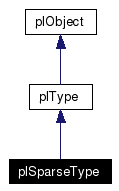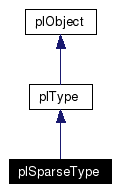
#include <plSparseType.h>
Inheritance diagram for plSparseType:


Public Member Functions | |
| plData | first_value () const |
| Returns the start value of the type. | |
| bool | next_value (plData &v) |
| Returns {true} if {v } has a successor and sets {v} to the successor otherwise it return {false}. | |
| bool | next_value (float &v) |
| Returns {true} if {v } has a successor and sets {v} to the successor otherwise it return {false}. | |
| bool | next_value (double &v) |
| Returns {true} if {v } has a successor and sets {v} to the successor otherwise it return {false}. | |
| bool | next_value (long double &v) |
| Returns {true} if {v } has a successor and sets {v} to the successor otherwise it return {false}. | |
| bool | next_value (int &v) |
| Returns {true} if {v } has a successor and sets {v} to the successor otherwise it return {false}. | |
| plSparseType (int nvalues, plFloat *values) | |
| Defines a sparse type from {plFloat} array. | |
| plSparseType (const vector< plFloat > &values) | |
| Defines a sparse type from STL vector. | |
Protected Member Functions | |
| void | Output (ostream &out) const |
| Writes the spars type at the output given by "out". | |
Definition at line 33 of file plSparseType.h.
|
||||||||||||
|
Defines a sparse type from {plFloat} array. The number of values into the type is given by the first parametter {nvalues}. While the constructor does not ask for a sorted vector it is strongly recomended to use a sorted array, this because it can be particularly avantageus when using optimization techniques. |
|
|
Defines a sparse type from STL vector. The number of values in the type is given by the vector size. While the constructor does not ask for a sorted vector it is strongly recomended to use a sorted vector, this because it can be particularly avantageus when using optimization techniques. |
 1.4.1
1.4.1